IAB 100 HOMES
About Project
The Institute of Architects Bangladesh (IAB) is proud to introduce the “Hundred Homes for Rural Poor” initiative, a project born out of a deep commitment to social responsibility and addressing a pervasive inequality in housing development. For far too long, the architectural and housing focus in Bangladesh has disproportionately served the urban elite, neglecting the needs of approximately 90% of the population residing in rural areas. Unlike the numerous public-private banks and specialized housing loan institutions available for city dwellers, there is a distinct absence of national policies or financial support for rural housing. Despite the fact that a basic rural house can be built for a modest sum of one and a half to two lakh Taka, state public policy support has been conspicuously missing. This stark disparity, where the cost of a single urban toilet project could fund five rural homes, underscores a profound “inhuman discrimination” that the IAB is determined to rectify.
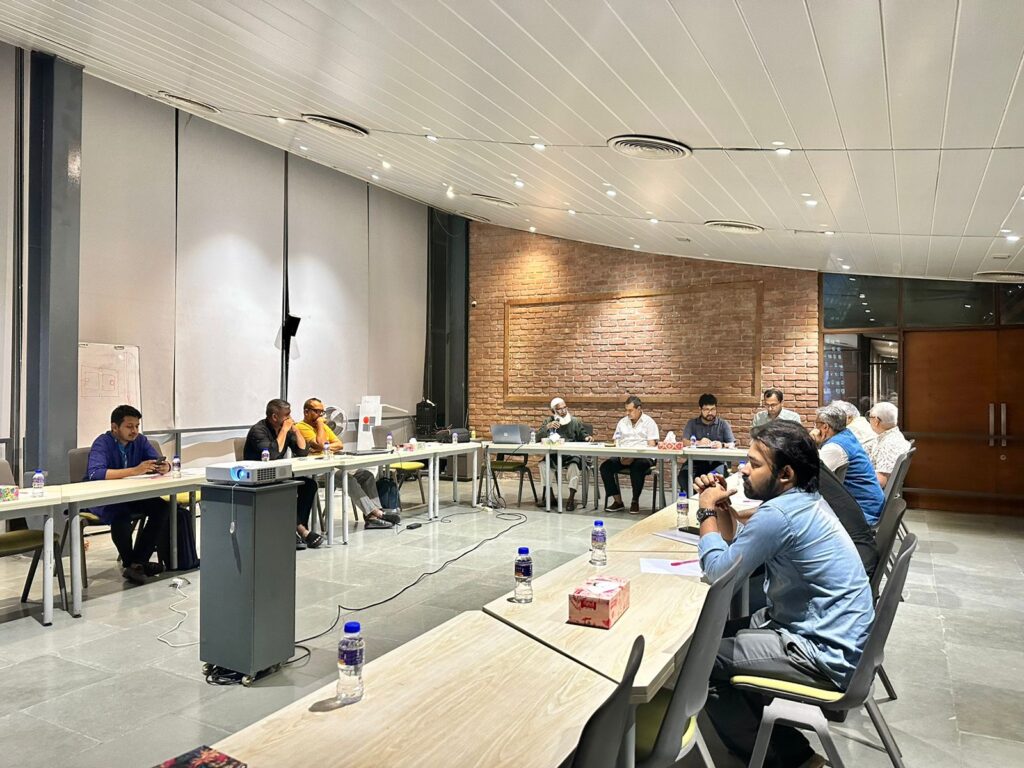
Approved by the IAB’s 25th Executive Council on April 11, 2023, our project is a direct response to this urgent need. The core objectives are clear: to provide safe and sustainable shelters for rural homeless people, particularly those who own land but lack the financial means to build. Beyond the immediate provision of housing, this initiative is designed to embody architects’ societal responsibilities. We aim to involve young architects, offering them invaluable hands-on experience and fostering a deep understanding of vernacular architecture and the complex socio-economic conditions of Bengal villages. This is a unique opportunity for them to contribute to a cause that directly impacts the lives of many.
The “Hundred Homes for Rural Poor” project will be implemented systematically across all eight administrative divisions of Bangladesh, encompassing Barisal, Chattogram, Dhaka, Khulna, Mymensingh, Rajshahi, Rangpur, and Sylhet. Leveraging IAB’s existing administrative units—such as its chapter in Chattogram and centers in Khulna, Rajshahi, and Sylhet, alongside central operations in Dhaka—ensures widespread reach. The entire operation is meticulously organized by the IAB Social Responsibility Committee (SRC), supported by a dedicated structure of Divisional Representatives (DRs), Regional Key Persons (RKPs), and critically, Local Contacts (LCs). These LCs are often local community members, chosen for their direct access and deep familiarity with the beneficiaries, ensuring that the project remains community-centric and culturally sensitive.

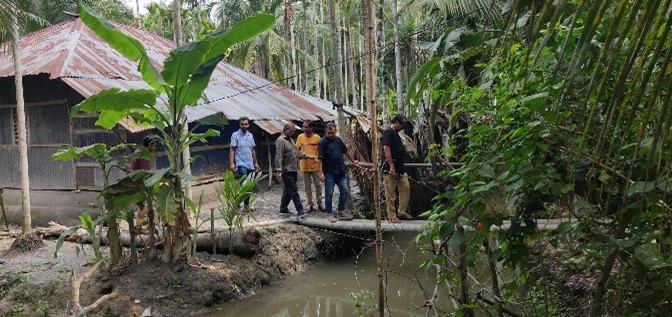
Collaboration is at the heart of our success. We are actively engaging with IAB’s 13 accredited Bachelor of Architecture (B.Arch) programs, which will contribute design expertise, technical support, and hands-on learning opportunities for students. Their involvement includes designing sustainable and affordable homes that incorporate innovative solutions like energy-efficient systems and natural ventilation.
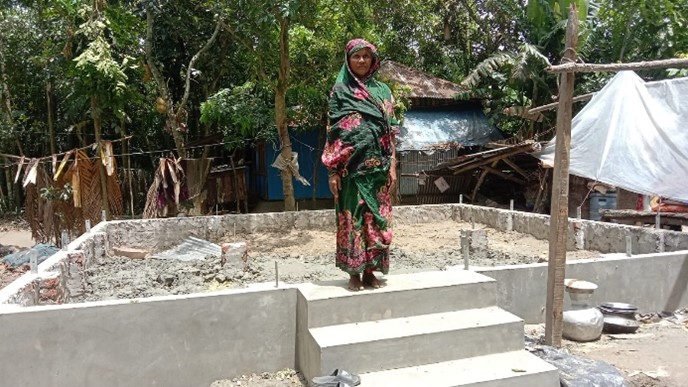
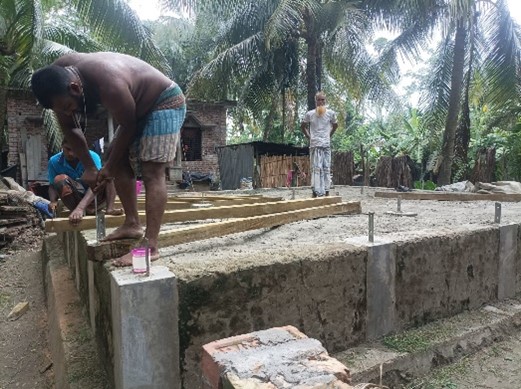
Furthermore, a multidisciplinary team of engineers is integral to the project, contributing expertise in structural design to ensure homes withstand environmental factors, energy efficiency to reduce utility costs, site selection for stability and safety, and environmental sustainability through the use of locally available, eco-friendly, and upcycled materials. This collaborative approach, involving architects, engineers, contractors, and local communities, is crucial for delivering housing that is not only affordable but also resilient and environmentally conscious.
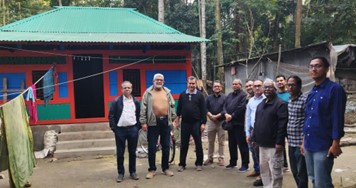
Transparency and efficiency are paramount in our fund management. Each home is budgeted at 2,00,000 BDT (Taka Two Lac only), with no scope for luxury. A defining principle is that all committee members and operational personnel serve voluntarily, foregoing remuneration as part of their obligation to society. Funds are rigorously managed through two separate accounts, sourcing from Zakat, members’ contributions, and external donations. Zakat funds are specifically allocated to direct building materials and labor costs, ensuring their appropriate use according to Islamic principles.
Beneficiary selection is equally transparent and objective, prioritizing Bangladeshi citizens who own land but are homeless or at risk, cannot afford to build, and are particularly vulnerable, such as widows, the sick, disabled, or those facing climatic threats. Importantly, beneficiaries will not receive any cash; instead, houses are constructed under direct supervision, with the beneficiary only responsible for preparing the plinth (viti). This integrated, community-driven approach ensures that every resource contributes directly to creating lasting impact and dignified homes for the rural poor of Bangladesh.
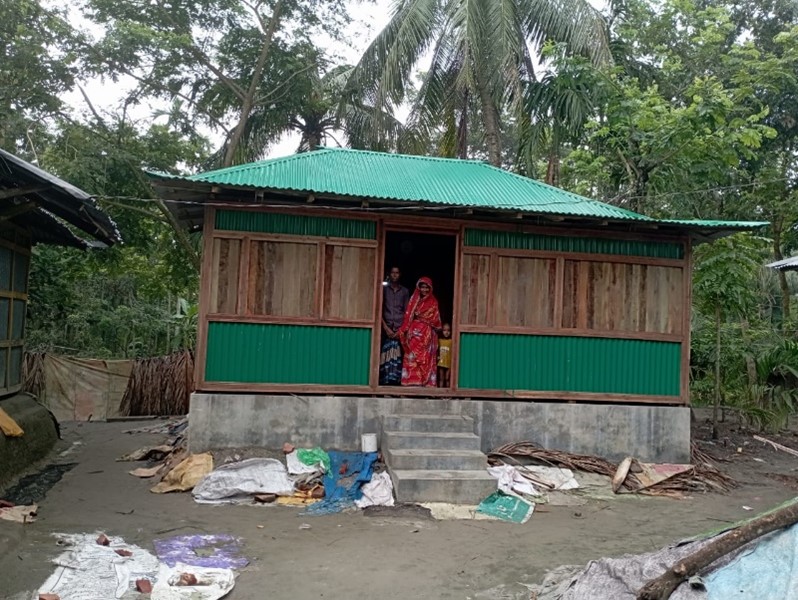
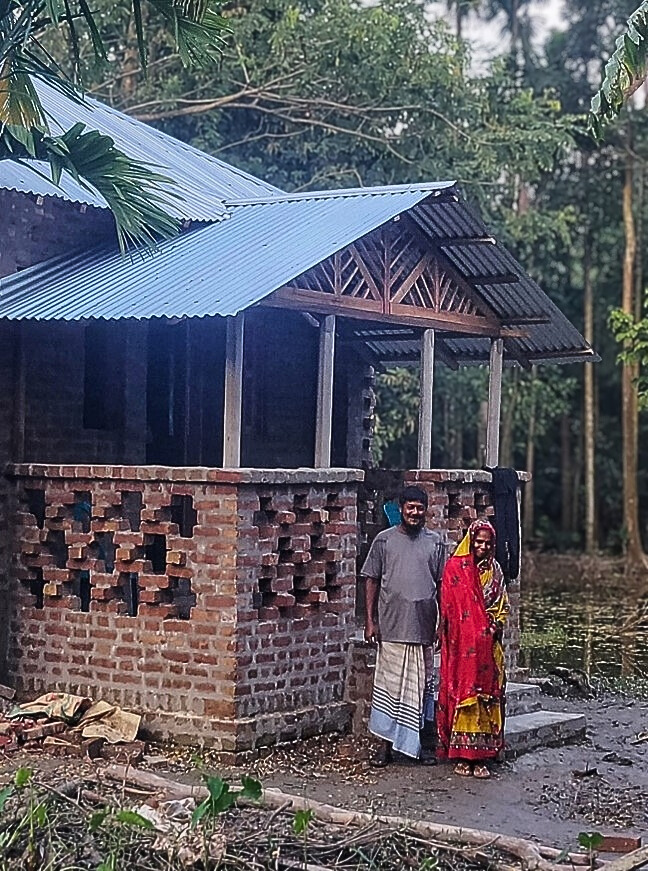
Related Links
1. Published News
2. Published News
বাংলাদেশ স্থপতি ইন্স্টিটিউটের গ্রামীন প্রান্তিক মানুষের জন্য “১০০ বাড়ি প্রকল্প” (100 Homes for the marginalised rural communities of Bangladesh) এর কার্যক্রম নিয়ে ( ২৯ মার্চ, ২০২৪) এর দৈনিক বণিকবার্তায় প্রকাশিত হয়েছে।
3. Presentation on 100 Homes
4. All Reports and Publications